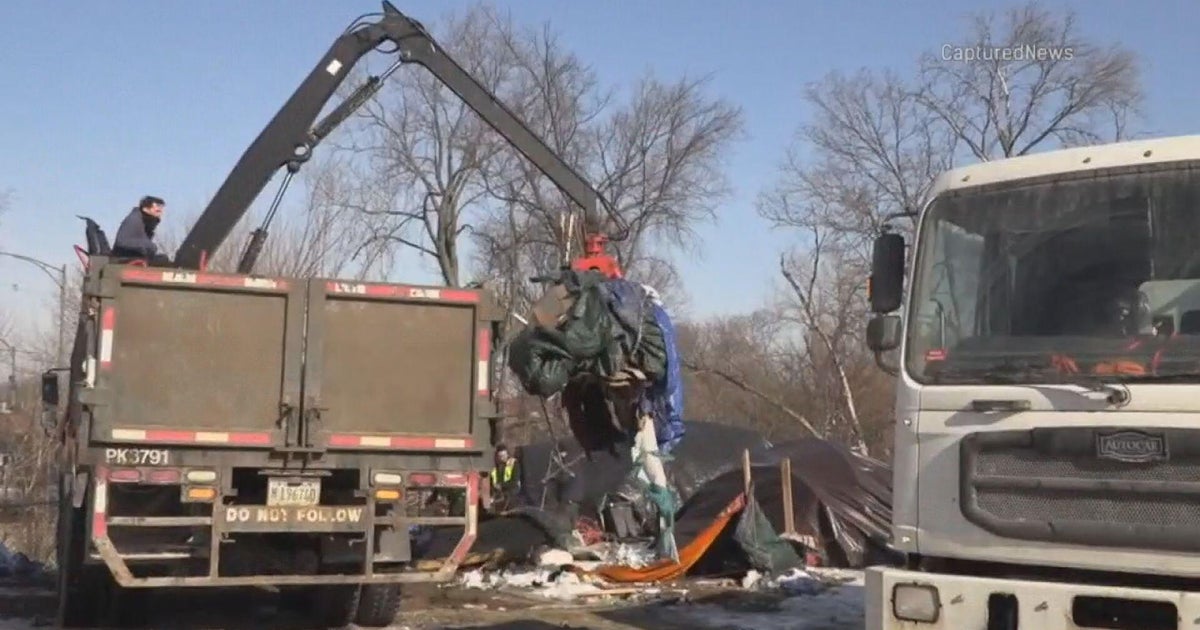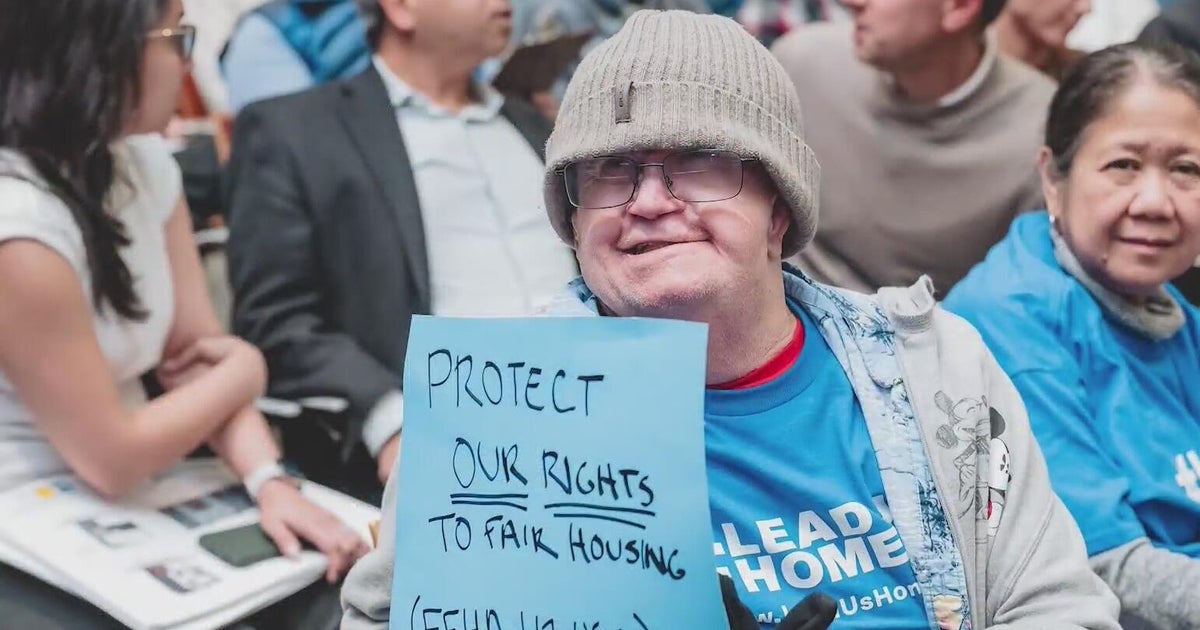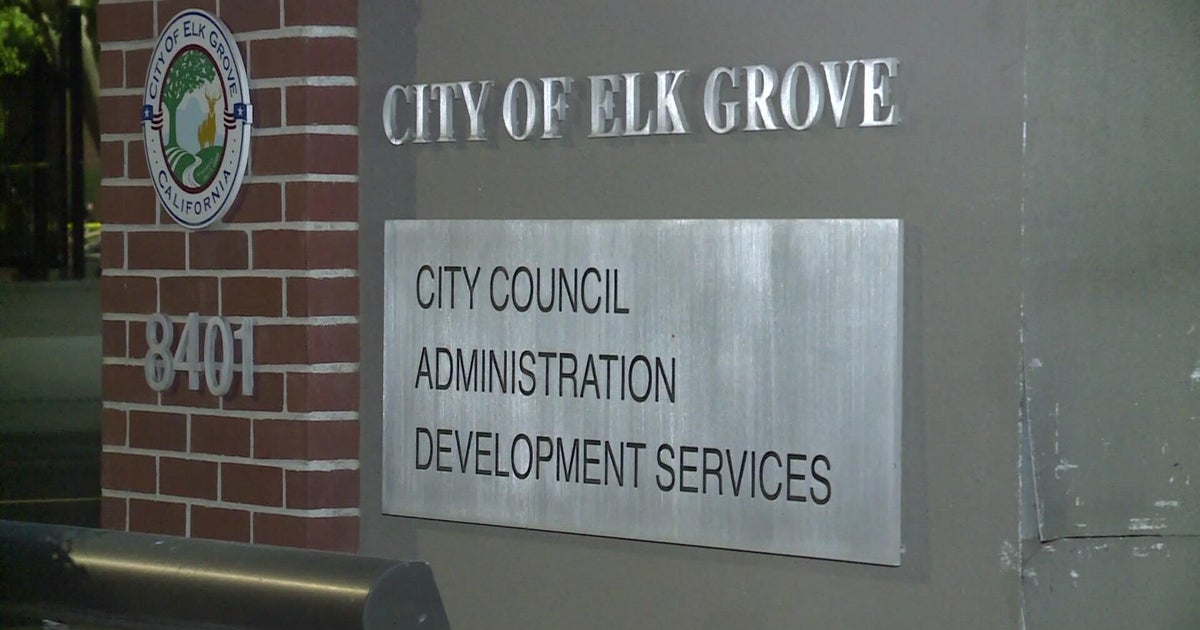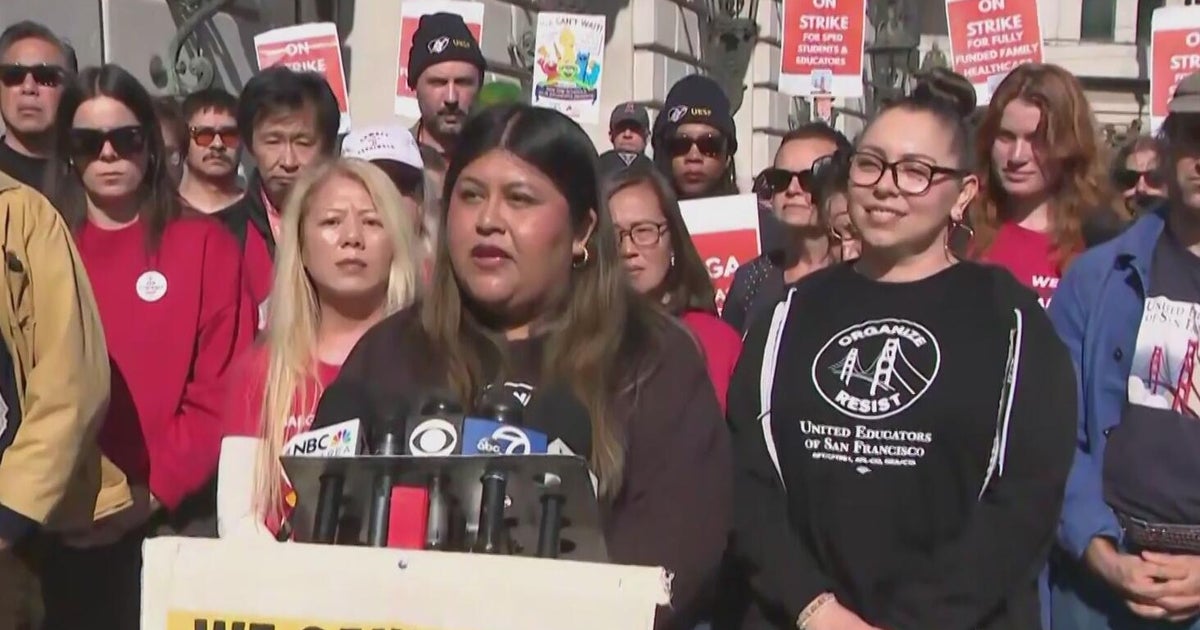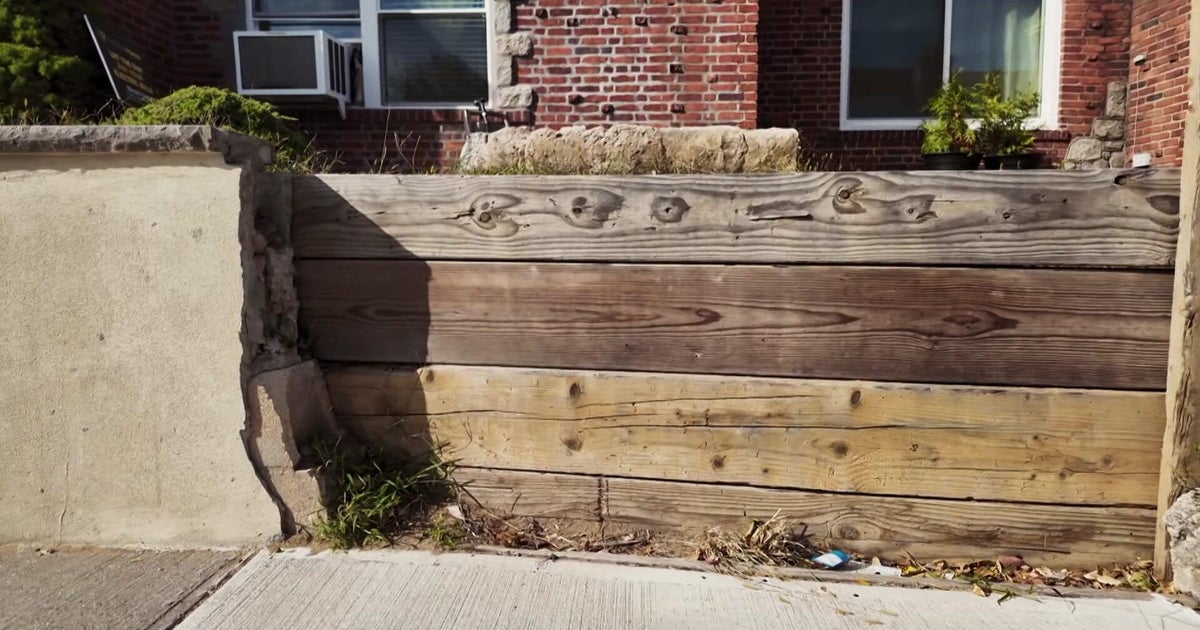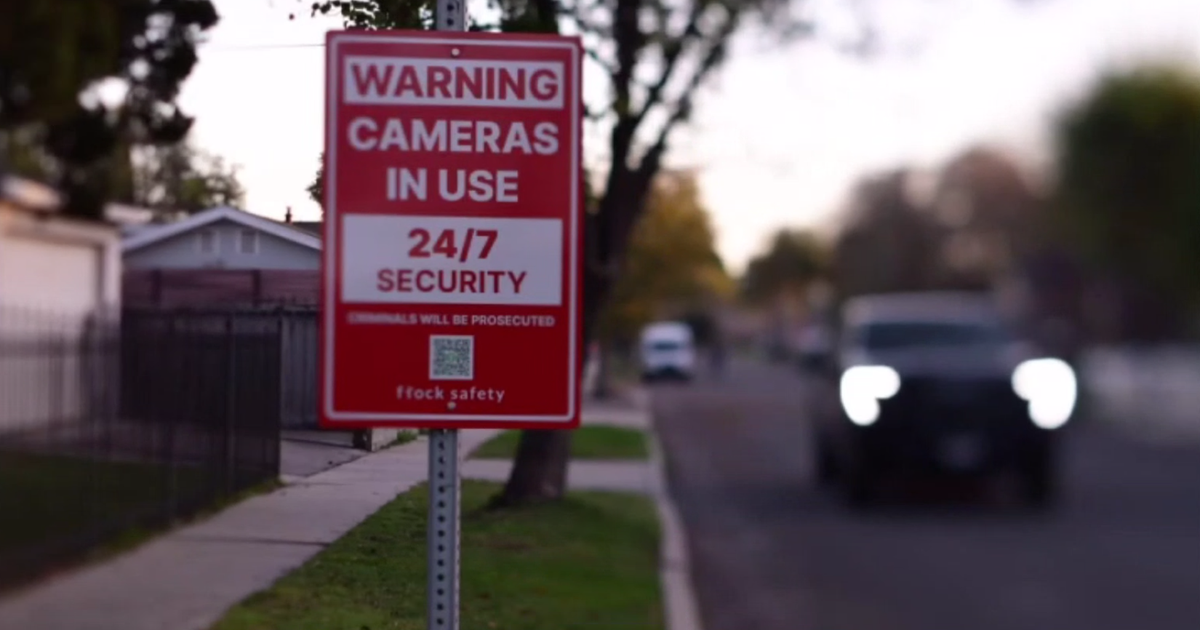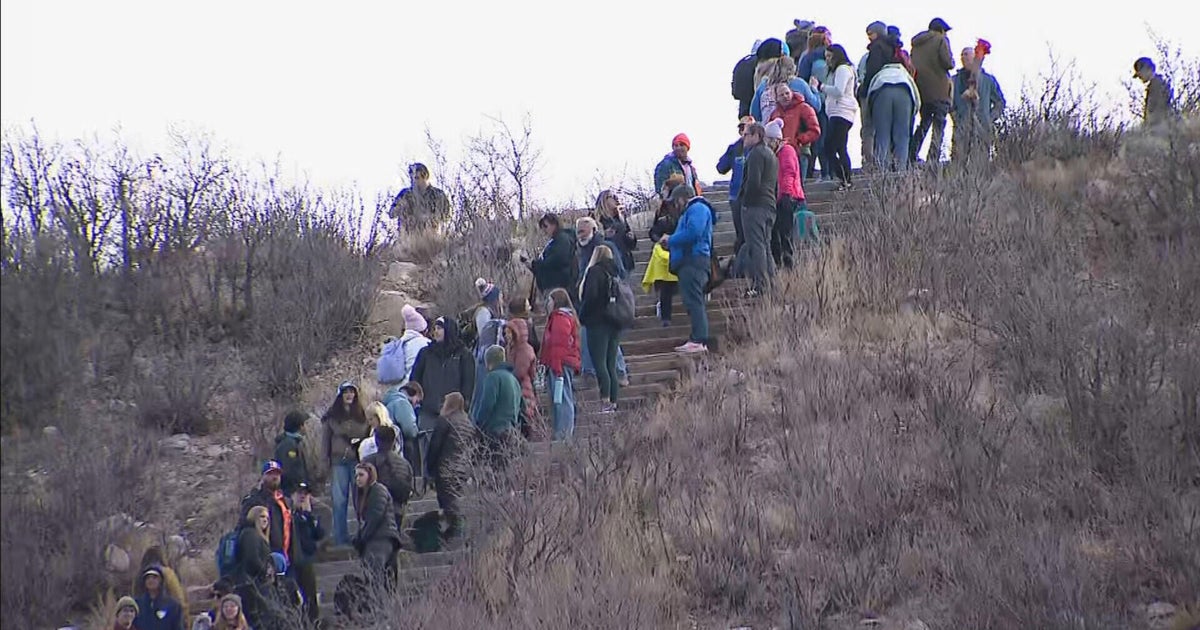SF's "aggressive" new encampment sweeping policy sees mixed reception
San Francisco is beginning to crack down on enforcing its policies of clearing homeless encampments and clearing sidewalks those encampments once stood.
That comes with skepticism from unhoused people who say they are seeing new warnings and resources, but many remain concerned about the quality of resources and potential for penalties of living on the street.
"I'm nervous, scared, like I don't want to go to jail over doing something like this," Simon, an unhoused man who set up a tarp beneath the overpass connecting 101 to 280, told CBS News Bay Area. "I'm just trying to live."
His encampments have been swept away too many times for him to count - but he says for the first time he received an early warning to pack up his belongings before the area is cleaned on August 1.
"I'm using the day to kind of connect or look out and see what I can do, where I can go, but I just know that I won't be here come tomorrow morning, that's all I know," Simon explained.
He said he's experienced all phases of the city's strategies to clear encampments over the last nine years. From being moved three times in a day, to never in three months.
Simon said he's tried repeatedly to get housing through the city but so far, with no success.
"I lost my car and then my place, and then my job," he explained. "Then from there, I never was able to get even back on my feet, enough to take a breath to get above water. So, I would not choose this for anything. It's not a fun lifestyle, it's not a fun existence."
When city agencies plan a clearing of a homeless encampment that may involve their bag and tag process of collecting items and storing them for up to 90 days, it is required to post notice 72 hours before a sweep begins.
Under a recent executive order by Governor Gavin Newsom that allows police officers to enforce anti-camping laws, officers are not required to provide early notice before enforcing such laws.
In the nine-block radius near the city's design district that is scheduled for sweeping and cleaning Thursday morning, two signs notifying people to the clearing were visible. Some unhoused people said they had never seen a sign, while nearby DPW workers reported the signs are frequently removed.
Simon says if he were to be offered housing, he would accept it on the spot, but he doesn't believe those resources will be available.
"I would like to be here and wait around and see if they have something for me, because that would be great," he explained. "But it seems more often than not, they just kind of don't have anything."
Nearby shop owners report mixed feelings about the new crack down on clearing encampments.
Store owner Daniel Killar says it's a good sign the city is taking action - his business has faced debris and trash from nearby encampments for over a decade - but says he remains concerned for the people being removed.
"It's a little bittersweet for me, because I have a lot of empathy for the people that don't have homes," he explained. "I'm all for getting the people into somewhere where they have a safe place to live ... we've certainly had comments over the years that the designers don't feel comfortable walking down the street to come to my showroom. But we also live in San Francisco, and it's not unfamiliar to anybody."
But a key question he has is where do the unhoused go after they've been cleared out?
According to the memos posted in the area, the city says it will provide shelter to anyone who is being removed.
As of Wednesday afternoon, the city's shelter waitlist stands at 148 people long. Another nearby shop owner says he's seen the city try and fail too many times to improve this area to believe change is coming.
"You know, this is an empty gesture," said Howard Settle, a trade store owner who has operated in the area for 20 years. "God bless them for cleaning up. But it'll be the same in a day or two."
Simon is just as skeptical that the city will deliver on its promises.
"I'm definitely nervous, scared and frightened, not looking forward to seeing what happens after."
San Francisco Board of Supervisors President and mayoral candidate Aaron Peskin called the enforcement a political stunt in a statement released by his office, saying, "policies to address homelessness must be humane, lawful and effective, not implemented just because someone's job is on the line."
Additionally, Supervisor Connie Chen has requested daily reports from the mayor's office on the effectiveness of the new policies.
